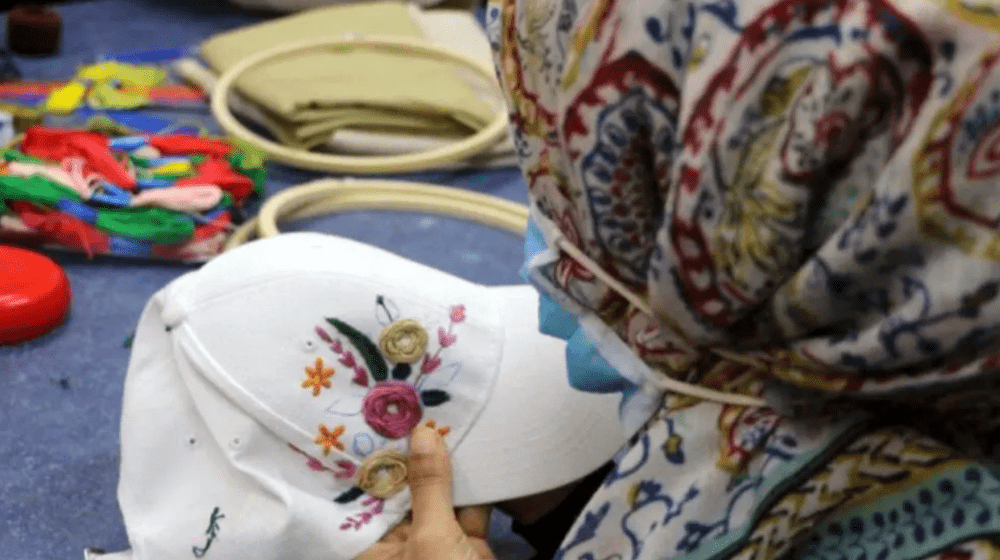GAZA STRIP, Palestine – “I believed the recipe for a good marriage would be respect, two-way communication, and love. Unfortunately, I was mistaken.”
When Inas*, 28 from the Gaza Strip, got married five years ago, she believed her new husband was the love of her life. But after just a few months, her delight turned to despair as he subjected her to increasingly harsh verbal, emotional and physical abuse. “I was beaten in front of his family too,” she told UNFPA.
Inas soon discovered that her husband was also addicted to drugs and alcohol, and decided for her own safety to leave the marriage. But social and cultural norms in Gaza mean divorce is often viewed as the fault of the woman, and those who seek a separation can face stigma within their communities – even by friends and family.
Although anxious about her future, Inas was determined to find a way out of her situation.
Following a particularly bad attack from her husband, she visited a UNFPA-supported safe space in Jabilya, in the Gaza Strip. Set up in 2017 together with UNFPA partner the Abdel Shafi Community Health Association, it is one of two safe spaces in northern Gaza and Gaza City, offering survivors of gender-based violence a secure haven where they can access social and health services as well as request legal advice.
A 2019 survey revealed that one-third of married women in Palestine are subjected to domestic violence, but there is no law currently in place that criminalizes it. More than half of sexual and gender-based violence survivors choose not to report it, with many women justifying their husbands’ abuse.
Comprehensive health care
Several months after her first visit, Inas had moved back in with her mother and siblings – a fractious but at least stable situation – when she discovered a small lump in her breast. Staff at the safe space referred her to a doctor, who confirmed her fears: The lump was cancerous.
A local medical team working with the safe space provided Inas with hormonal therapy, vitamins and supplements, all free of charge. Inas had a mastectomy, underwent chemotherapy and attended individual and group psychosocial support sessions for cancer survivors.
Hanan Diab, a therapist at the safe space, explained, “The counselling sessions help the women to share their pain, experiences, stories and triumphs, so they can overcome feelings of low self-esteem and negativity.”
Women are also encouraged to find and follow their passion: The safe space offers vocational training in embroidery, handmade accessories and crochet. Soha Musa is a gender-based violence specialist working with the Abdel Shafi Association, who told UNFPA, “Inas put all her energy and patience into learning embroidery. As part of the programme, she received a small grant and with that opened her own business – it was a great success!”
A cycle of support
The initiatives are part of a UNFPA project that ensures comprehensive sexual and reproductive rights and health services for women and vulnerable young people and supports survivors of gender-based violence. The project is funded by the Government of Canada and operates in East Jerusalem, the Gaza Strip and the West Bank.
In 2020, UNFPA reached more than 44,000 people across Palestine with gender-based violence prevention and response services through ten safe spaces for women and girls. Nearly 500 survivors also participated in vocational training and received grants to help them to start their own business and earn an income.
Inas has since recovered well, from both the cancer and from the trauma of domestic abuse. She is now a volunteer at the safe space in Jabilya, training fellow survivors of violence in life-skills to help them gain self-confidence and support others.
No longer afraid of being shunned by her community, she is a valuable asset for the association and an inspiration for many.
“My experience didn’t kill me, it made me stronger. Now I’m more conscious of the importance of playing a positive role in someone else's life,” she said. “I’m eager to empower and support others facing challenges like the ones I went through.”
*Name changed for privacy and protection.


